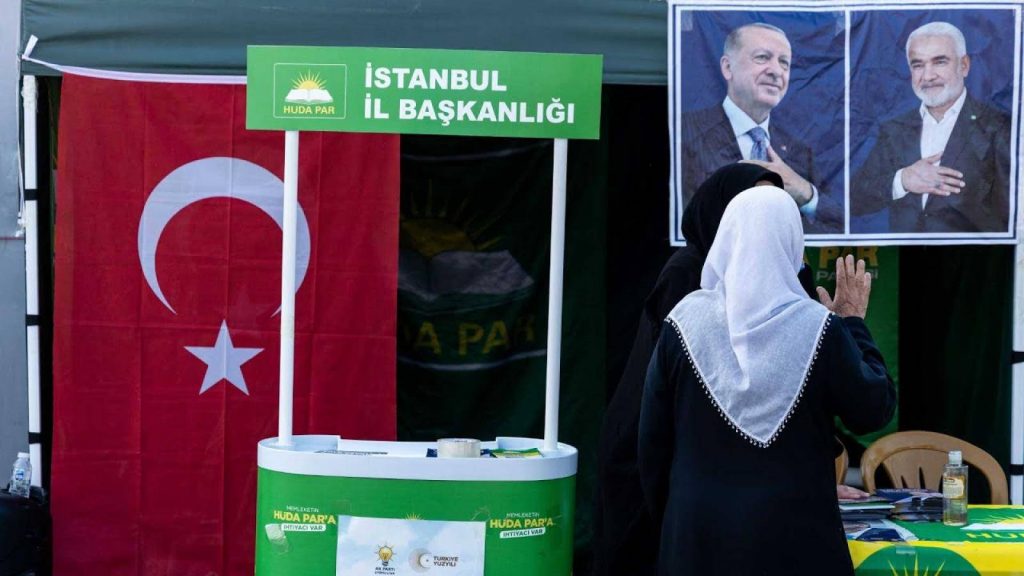“The vote will test whether voters in Turkey can rely on social media for independent news and to express their views on the election and its outcome, despite government efforts to put companies under its heel.”
By Brett Wilkins. Published 5-11-2023 by Common Dreams

As Turks prepare to vote in Sunday’s presidential and parliamentary elections, a pair of human rights groups warned Wednesday that the right-wing government of President Recep Tayyip Erdoğan “will exert considerable control over the digital ecosystem in an effort to undermine the outcome.”
Human Rights Watch (HRW) and Article 19, an international group promoting freedom of expression, published a question-and-answer report examining “potential threats to Turkey’s online environment in the parliamentary and presidential elections in which President Erdoğan—who has been in power for over 20 years—and his ruling Justice and Development Party (AKP) face a significant electoral challenge.”
Social media and the internet are key sources of news and free debate in Turkey’s May 14 elections.
— Human Rights Watch (@hrw) May 11, 2023
But the Turkish government’s practice of silencing online dissent could undermine the integrity of the election. https://t.co/oXY3LIqTZH pic.twitter.com/7OFV4OgBCx
As the BBCreports:
Six opposition parties have combined forces for presidential and parliamentary elections on 14 May, picking opposition leader Kemal Kılıçdaroğlu as their unity candidate.
Turkey has become increasingly authoritarian under President Erdoğan and the opposition is seeking to reverse that.
He appears vulnerable, with Turkey facing soaring inflation and reeling from twin earthquakes that have left more than 50,000 people dead.
Any candidate that can secure more than half the presidential vote on 14 May is the outright winner. Failing that, the race goes to a run-off two weeks later.
The new report details how the Turkish government—which has a history of quashing online dissent—”has amassed a vast arsenal of digital censorship tools,” while listing steps social media and messaging platforms should take to safeguard human rights during the elections.
Voters in Turkey will soon head to the polls in a high-stakes election.
— Human Rights Watch (@hrw) May 10, 2023
Ahead of this election, the Turkish government has accelerated its efforts to enforce censorship and tighten control over social media and independent online news sites.https://t.co/3RZfKjQoQB pic.twitter.com/VXbd08pnEH
“The Turkish government has accelerated its efforts to enforce censorship and tighten control over social media and independent online news sites ahead of this election,” HRW senior technology researcher Deborah Brown said in a statement. “The vote will test whether voters in Turkey can rely on social media for independent news and to express their views on the election and its outcome, despite government efforts to put companies under its heel.”
According to the groups’ report:
The Turkish government has equipped itself with multiple powers that it can use as a pretext to throttle any social media platform and render it unusable. Such steps could be taken during elections with the ulterior motive of limiting the right to information and independent news online. If election results are contested during election day or in its aftermath, the government may use its full array of censorship powers—and particularly its “spreading false information offense”—to prevent independent groups from challenging results that favor the ruling party. Social media companies may face intense pressure to remove content the government views unfavorably including assessments from independent monitors.
Turkish authorities have used the “fake news” law to target critical journalists; now critics say it is being applied to crack down on social media users.
“Turkey has long been hell for journalists,” Sevgi Akarçeşme, formerly the editor-in-chief of Today’s Zaman—the country’s largest English-language daily—toldCNBC last October. “With this new law… the goal is to control social media because conventional media is already under Erdoğan’s control.”
🧵🔸Can #Turkey’s elections be truly fair with internet censorship?
— ARTICLE 19 ECA (@article19europe) May 10, 2023
🔸How may the govt’s control over the Internet impact the fairness of vote?
🔸What should big tech do?
👉Find answers in the Q&A by @article19org and @hrw https://t.co/d5aqwfuqrs 1/2 pic.twitter.com/VAFFwLkdYQ
Sarah Clarke, director of Article 19 Europe, said in a statement that “social media companies may face intense pressure to remove content the government views unfavorably, including assessments from independent monitors.”
“It is crucial,” she added, “for companies to resist these pressures and do everything in their power to push back against measures that would make them complicit in rights abuses during this critical election period.”
This work is licensed under Creative Commons (CC BY-NC-ND 3.0).

